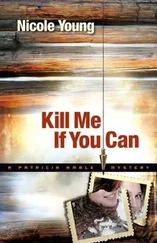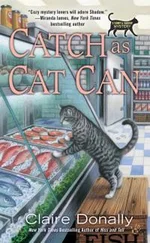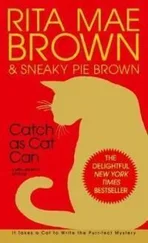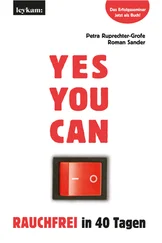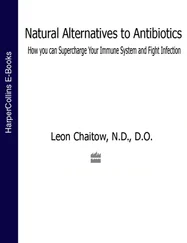“Keep your uniforms, keep your ID cards and keep your check stubs [I’d always returned a check stub when I cashed a check],” I instructed them. “If the company wants the uniforms and IDs returned, you’ll be contacted. As far as employment goes, just return to school, because we’re not going to hire you on a permanent basis until you graduate, and then you’ll be contacted by a company representative. It probably won’t be me, because I’ve been ordered back to flight duty. But I hope you’ll all end up as part of my crew again, for I’ve had a wonderful time with you this summer.”
I had had a wonderful time, all things considered. If the girls put a lot of gray strands in my hair, they also, unwittingly, put a lot of green stuff in my pockets. Something like $300,000 in all.
The girls did hear from Pan Am, as a matter of fact. After three months of a steady stream of photographs, from dozens of European cities and all showing the same eight girls in Pan Am stewardess costumes, advertising executives of Pan Am launched an investigation. Eventually the entire matter ended up in O’Riley’s hands and he deftly sorted it out and put it into focus for the carrier’s officers and also for the girls.
I understand all eight of them took it gracefully, if with some vivid and descriptive language.
I stayed in Europe for several weeks after parting with the girls, then returned to the States, where I wandered around like a gypsy for several weeks, never staying in one place for more than two or three days. I was becoming moody again, nervous and edgy, and the knowledge that I would probably always be a man on the move, a fox perpetually hunted by the hounds, was beginning to weigh on my conscience, affecting my conscious life.
I virtually ceased my check-swindling activities, fearful the hounds were close enough and reluctant to create additional spoor. Only rarely was I challenged to display my creative criminality.
One such time was in a large midwestern city. I was sitting in the airport restaurant after arrival, enjoying lunch, when I became interested in the conversation in the adjoining booth, an exchange between an elderly, stern-faced man and a very young, servile companion, apparently an employee. I gathered from the conversation that the older man was a banker, en route to a convention in San Francisco, and from the remarks he made to the young man it was clear he expected his bank to make money in his absence. He was cool, crusty, arrogant and obviously proud of his lofty status, and when he was paged on the airport intercom I learned his name. Jasper P. Cashman.
That afternoon I did some discreet digging into Jasper P. Cashman’s background, utilizing a local newspaper’s library. J. P. Cashman was a prominent man in his community, a self-made tycoon. He’d started as a teller in his bank when the financial house had assets of less than $5 million. He was president now and the bank’s assets exceeded $100 million.
I scouted the bank the following day. It was a new building, still boasting its expansion motto on the large front window. The interior was roomy and pleasing. Tellers on one side, junior officers scattered across an opposite wall. Senior officers in airy, glassed-in offices. Cashman’s offices on the third floor. J. P. Cashman didn’t believe in close contact with the underlings.
I rented a car, drove to a modest city 175 miles distant and opened a checking account for $10,000 with a counterfeit cashier’s check. Then I returned to Cashman’s town and the next day called at his bank. I wasn’t really interested in the money involved in my swindle. Cashman’s manner had irked me, and I simply wanted to sting him.
I was the picture of the affluent businessman when I entered the bank. Gray three-piece suit. Alligators, luster-shined. Countess Mara tie. A leather brief-case, slim and elegant.
Cashman’s companion at the airport was one of the junior officers. His desk was neat and tidy. His nameplate sparkled with newness. He obviously was newly promoted. I dropped into the chair in front of his desk.
“Yes, sir, can I help you?” he asked, patently impressed by my dress and bearing.
“Yes, you can, as a matter of fact,” I said easily. “I’m Robert Leeman from Junction, and I need to cash a check, a rather large one. I’ve all the proper identification and you can call my bank for verification, but I don’t think that’ll be necessary. J. P. Cashman knows me, and he’ll verify the check. You can call him. No, I’ll do it myself, since I need to talk to him anyway.”
Before he could react, I reached over, picked up his telephone and dialed Cashman’s correct extension. Cash-man’s secretary answered.
“Yes, Mr. Cashman, please… He isn’t… Oh, yes, he mentioned that last week and it slipped my mind. Well, listen, would you tell him when he returns that Bob Leeman dropped by, and tell him Jean and I are looking forward to seeing him and Mildred in Junction for the hunt. He’ll know what I mean… Yes, thank you.”
I replaced the telephone and stood up, grimacing. “Doesn’t look like my day,” I said ruefully. “I needed the cash, too. I can’t get to Junction and back in time for this deal. Well, good day, sir.“
I started to turn and the young officer stopped me. “Uh, how big is the check you wanted to cash, Mr. Leeman?”
“Pretty good sized,” I said. “I need $7,500. Do you think you can take care of it? I can give you the number of my bank in Junction.” Without waiting for a reply, I dropped back into the chair, briskly wrote out a check for $7,500 and handed it to him. As I figured, he didn’t call the bank in Junction. He stood up and turned toward one of the glassed-in offices. “Sir, I’ll have to have Mr. James, the vice president, okay this, which I’m sure he will. I’ll be back in a moment.”
He walked into James’s office and said (as I later learned) exactly what I’d conditioned him to say. “Sir, there’s a Mr. Leeman here from Junction and he needs to cash this rather large check. He’s a personal friend of Mr. Cashman, and he wanted to see Mr. Cashman, but as you know Mr. Cashman’s in San Francisco.”
“A personal friend of the old man’s?”
“Yes, sir, business and social, I understand.”
“Cash it. We sure as hell don’t want to irritate any of the old man’s associates.”
A minute later the young officer was handing the phony check to a teller. “Cash this for the gentleman, please. Mr. Leeman, I’m glad I could help you.”
I wasn’t too well pleased with the Pavlov’s-dog swindle. In fact, I didn’t enjoy it at all. I left town that day and several days later stopped in a remote Vermont village to do some meditating. Mine were gloomy cogitations. I was no longer living, I decided, I was merely surviving. I had accumulated a fortune with my nefarious impersonations, swindles and felonies, but I wasn’t enjoying the fruits of my libidinous labors. I concluded it was time to retire, to go to earth like a fox in a remote and secure lair where I could relax and commence building a new and crime-free life.
I reviewed the places I had been on the atlas of my mind. I was mildly astonished at the extensiveness of my travels, recalling my journeys of the past few years. I had crisscrossed the globe from Singapore to Stockholm, from Tahiti to Trieste, from Baltimore to the Baltics, and to other places I had forgotten I’d visited.
But one place I hadn’t forgotten. And its name kept popping into my thoughts as I sought a safe haven. Montpellier, France.
Montpellier. That was my safe haven, I finally decided. And having made the decision, I didn’t give it a second thought.
I should have.
CHAPTER NINE. Does This Tab Include the Tip?
Читать дальше

